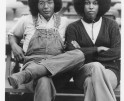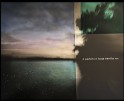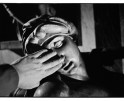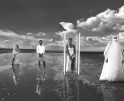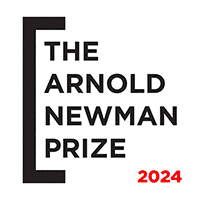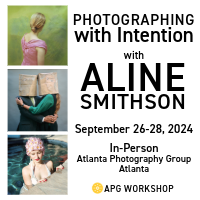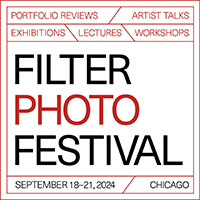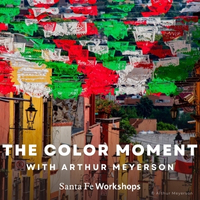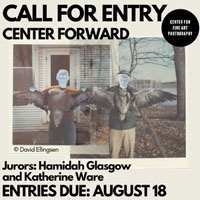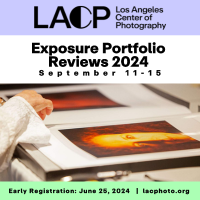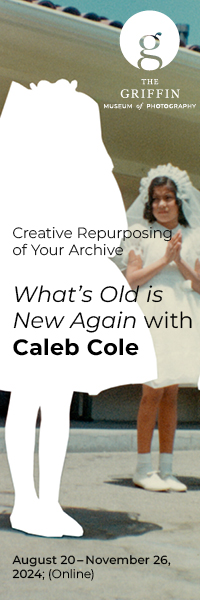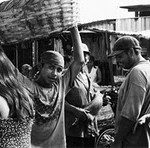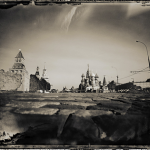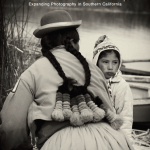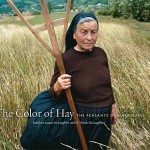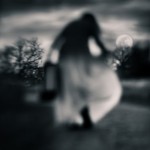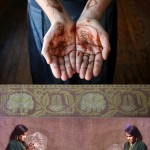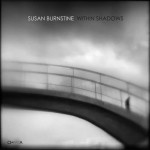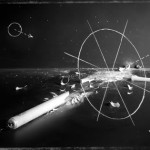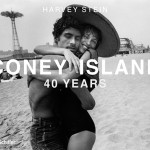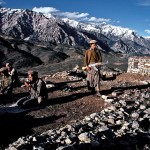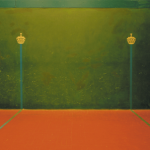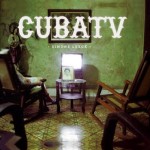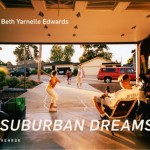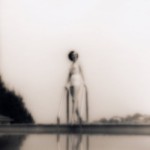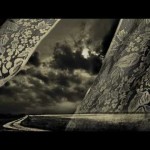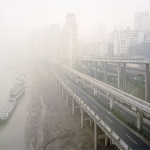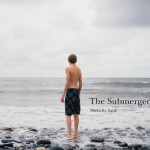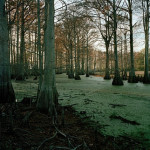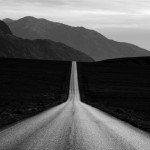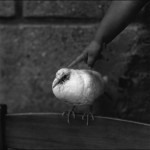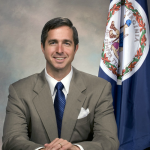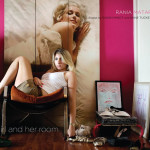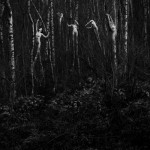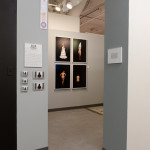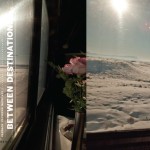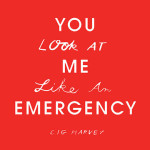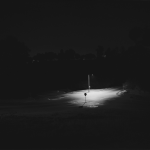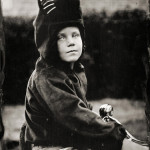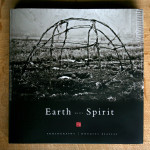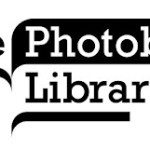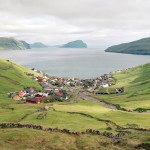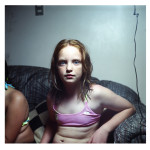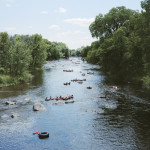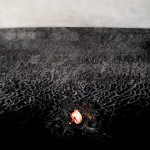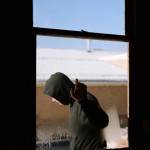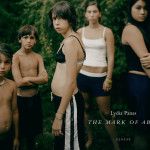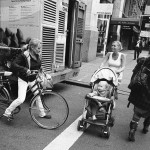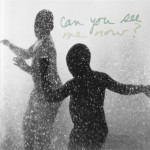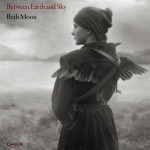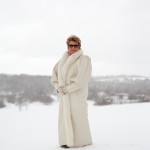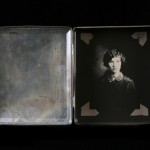Penumbra Foundation / Image Threads LTP: Jenia Fridlyand, Program Founder and Chair
This week Lenscratch will feature student, faculty, and alumni voices from the Penumbra Foundation / Image Threads The Photobook: Long Term Program (LTP).
LTP is a year-long online course which combines seminars, critiques with guest artists, and one-on-one sessions. Working with several instructors throughout the program, while also receiving assignments and feedback from guest critics, participants will have both continuity and variety of support. The learning process is based on regular production of physical maquettes, which helps participants deepen their understanding of the book form and allow them to continue redefining it for themselves. Reading and writing assignments, as well as individualized exercises throughout the year will develop the skills and knowledge necessary for a photobook maker. While the objective of the course is to have, at the end of the year, an artist book or a physical maquette to present to publishers or to self-publish, participants also establish a practice and a community to support them going forward.
Today, founder and Chair of the program, Jenia Fridlyand, shares her personal take on what LTP is about.
Jenia Fridlyand: In the final months of the Photography MFA program at Hartford Art School, we were asked to write about our teaching philosophies. Until then, I had never given teaching any consideration – I felt I could barely keep up with learning. The only notion I could come up with was that teaching is similar to parenting. My sense about parenting was, and still is, that you can have ideas and rules about how things should be done, but sticking to them in every situation might be the most sure way to mess up your kids, and ultimately, the process should be guided by emotional sincerity. However, at the time I had no real teaching experience to compare my parenting experience to, so I couldn’t substantiate even that claim. I ended up not submitting the assignment.
As soon as I finished grad school, I did start thinking more about teaching. One of my main takeaways from the MFA experience was that I had been learning just as much, if not more, during the critiques of my peers as I was during my own. I was looking for ways to recreate that circumstance for myself, and teaching was an obvious excuse to go back to the classroom. It just had to be a classroom where teaching is not so different from learning.
I have been striving for this parity in all the different workshops and classes I have had the opportunity to organize and teach over the years, but I feel that this paradigm is being realized most fully in LTP. I have also been able to articulate some sort of a teaching philosophy, which goes approximately as follows:
The process of making a photobook, just as any artistic process, is akin to trying to find your way in complete darkness. You are driven by an intense need to get somewhere, but you can only guess which direction that place is and what the surrounding landscape is like. And once you feel like you got where you wanted to go, you often start doubting that this is the actual place. How can this process be supported? It is very tempting – for both a teacher and a student – to assume that the darkness is not as complete for the former as it is for the latter. But it seems that all one can really offer to the other is advice on some methods for navigating the terrain and for keeping balance when stumbling.
This framework entails a few corollaries which have been the organizing guidelines for LTP:
- LTP only engages practitioners – almost all of them photographers (but some also writers, designers, and publishers) and all of them in love with the book form
- Students interact with at least three different mentors throughout the course of the year and get feedback from several more guest artists – to keep them fully aware that any assessment is just an opinion
- In a process with so many unknowns, structuring – of time, and especially of thought – is super helpful; hence assignments, deadlines, and tons of reading
- In the dark, trust is essential. The implications of this are difficult to quantify, but since trust is a two-way affair, there are particular qualities LTP looks for in students as well as in educators
- Trying to find your way is quintessentially a very lonely pursuit, but it is generative not to feel alone. Perhaps the ultimate goal of LTP is creating an environment where sustainable connections can thrive – within and across cohorts, between students and educators, and with the greater photobook community
I also have to confess that when it comes to making decisions, I am often guided by the selfish question: what would I want my own learning experience to be? Which questions would I want to be asked? What kind of challenge would I want to tackle in an assignment? Whose feedback would I want to have for my work? As a result, in accompanying the students on their journeys, I myself am getting an intense and rewarding education. So I would like to thank and acknowledge everyone who has been part of LTP thus far – without you this learning process would not have been possible for me:
Abigail Taubman, Adam Meeks, Alan Huck, Alana Perino, Alessandro Iovino, Amanda Sauer, Anastassia Tretiakova, Andrew McClees, Atefe Moeini, Austin Quintana, Ayrton Oliveira, Barbara Bosworth, Brad Zellar, Carl Wooley, Catie Leonard, Cecilia Donati, Courtney Allen, Curran Hatleberg, David Elliott, Deborah Kuschner, Ella Morton, Em White, Emma Phillips, Evan Davis, Gabriele Onere, Gabriella Báez, Grace Raffaele, Grégoire Pujade-Lauraine, Hans Gremmen, Ilisa Katz Rissman, Irina Rozovsky, Isabel Magowan, Israel Ariño, Jacinta Hayne, Jo Ractliffe, João Linneu, John Wha, Joshua McMillan, Kevin Kunstadt, Lisa Barlow, Mariela Sancari, Matteo Buonomo, Max Miechowki, Meg Ojala, Michael Monaco, Michael P Miller, Michael Serra, Mike Slack, Nelis Franken, Nelson Chan, Nigel Baldacchino, Odette England, Olivia Walsh, Paisley Walsh, Paul D’Orleans, Poppy Lekner, Rachel Liu, Raymond Meeks, Ruth Lauer Manenti, Sabrina Mandanici, Sara J. Winston, Shahrzad Darafsheh, Sophie Schwartz, Susan McLaughlinn, Tasha Lutek, Terri Weifenbach, Tim Carpenter, Tine Gunz, Yulia Prokhorova, Zackery Hobler.
Jenia Fridlyand (Moscow, 1975) is a photographer and educator based in New York City and the Hudson Valley. Her photographs and books have been exhibited in the United States and abroad. Fridlyand’s artist’s book Entrance to Our Valley was shortlisted for the Paris Photo – Aperture First Photobook Award, and trade editions were published by TIS Books. Her subsequent body of work will be the subject of a solo exhibition at Fototeca de Cuba in Havana in November 2023. She is represented by Galerie Wouter van Leeuwen, Amsterdam.Fridlyand is a co-founder of Image Threads Collective and is the chair of the Long Term Photobook Program at Penumbra Foundation in New York. She studied photography at Centre Iris and Université Paris VIII, and holds an MFA from the University of Hartford’s International Limited-Residency program.
Follow Jenia on Instagram @jfridlyand
LTP Photobook Program is a year-long online course which combines seminars, critiques with guest artists, and one-on-one sessions. Working with several instructors throughout the program, while also receiving assignments and feedback from guest critics, participants will have both continuity and variety of support. The learning process is based on regular production of physical maquettes, which helps participants deepen their understanding of the book form and allow them to continue redefining it for themselves. Reading and writing assignments, as well as individualized exercises throughout the year will develop the skills and knowledge necessary for a photobook maker. While the objective of the course is to have, at the end of the year, an artist book or a physical maquette to present to publishers or to self-publish, participants also establish a practice and a community to support them going forward. The course is presented in collaboration with the Penumbra Foundation in New York City, and Image Threads Collective.
Applications for the 2024 session of the Penumbra Foundation / Image Threads LTP are open until October 6th, 2023. It is free to apply. Learn more and apply here.
Follow LTP on Instagram @photobookprogram
Penumbra Foundation is a non profit organization that brings together the Art and Science of Photography through education, research, outreach, public and residency programs. Its goal is to be a comprehensive resource for photographers at any level, artists, students, professionals, historians, researchers, conservators and curators.
Follow the Penumbra Foundation on Instagram @penumbrafoundation
Image Threads Collective brings together artists, teachers, and bookmakers who are passionate about photographic projects and books, for the mutual exchange of ideas and critical feedback. They partner with students and working artists to produce collaborative workshops, public exhibitions, and long-term mentoring relationships. They are committed to working with and for the communities who host their programming.
Follow Image Threads Collective on Instagram @imagethreads
Posts on Lenscratch may not be reproduced without the permission of the Lenscratch staff and the photographer.
Recommended
-
2023 in the Rear View MirrorDecember 31st, 2023
-
The 2023 Lenscratch Staff Favorite ThingsDecember 30th, 2023
-
Inner Vision: Photography by Blind Artists: The Heart of Photography by Douglas McCullohDecember 17th, 2023
-
Black Women Photographers : Community At The CoreNovember 16th, 2023

